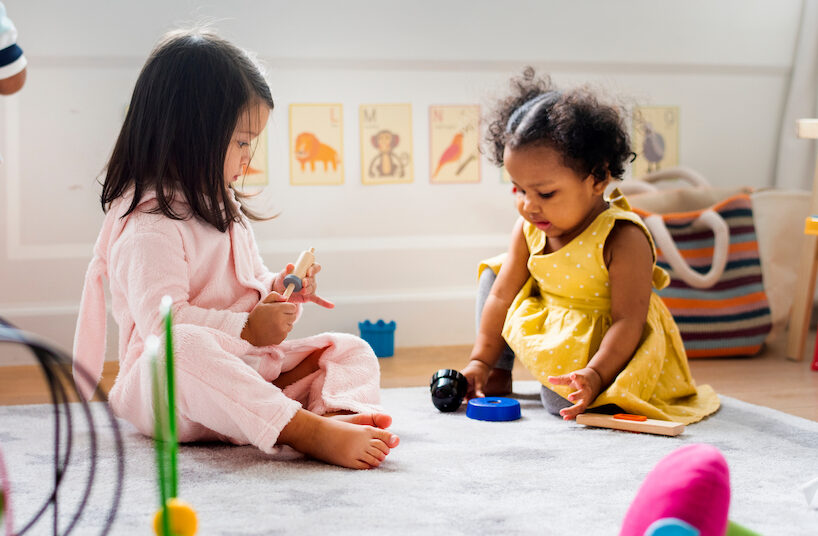They say laughter is the best medicine, and for good reason. A sense of humour helps children build resilience, self-esteem, and critical thinking skills. When a child can tell or understand a joke, it shows that they can think critically about sentence structure or even constructs in society.

According to recent studies, humour helps children cope with anxiety, as it helps them relate to their peers and come to understand the world in which they live in.
This Globe and Mail article discusses age of children corresponding to what they would likely find funny:
- Children up to the age of one experience humour through absurd events such as parents saying silly words or playing peek-a-boo.
- At age two to three, children find humour in language. Surprises, rhymes, and nonsensical words can make them laugh. This shows an understanding of language.
- By ages three to five, incongruity becomes funny. Children have an understanding of how the world works, and when that perception is altered, it can be humourous. For example, a cow that says oink is incongruous to their idea of how a cow is supposed to sound. The understanding of incongruity is an early sign of critical thinking.
- Children older than five years old begin to show an appreciation for different types of jokes as they develop their own tastes. Exaggeration, puns, and irony become more common and show a more complex understanding of language.

In any case, a sense of humour is an important part of development for your child so make sure to laugh and joke with them!


